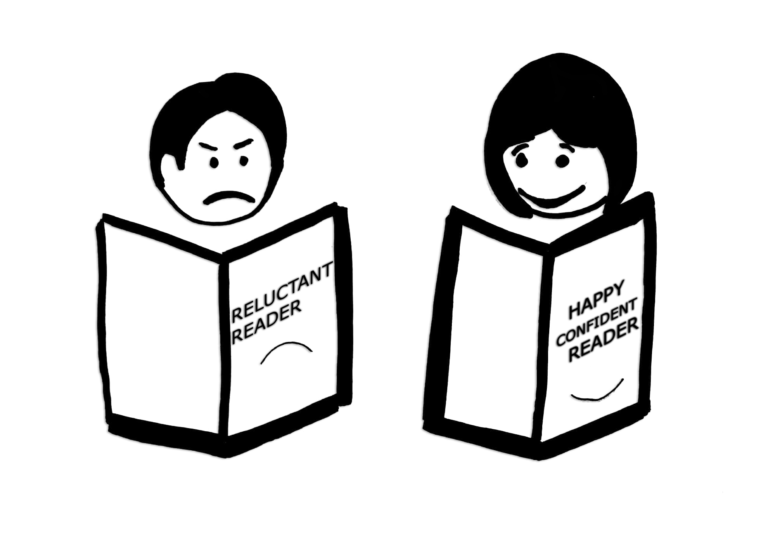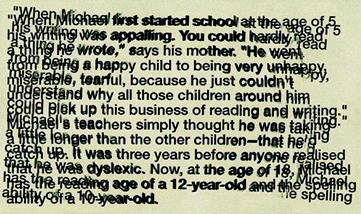Reading Difficulties
Reading is a complex skill. If we look at the dyslexia@bay model of reading we can break the skill of reading down into three stages:
- Firstly the eyes track across the each word and then each line.
- Secondly we say the words inside our head.
- Lastly we make a mental video of what we have read using Visual Dynamic Memory.
Understanding reading difficulties.
In order to fully understand the reading process and difficulties that are associated with reading we must fully understand stage of the reading process.
Eye-tracking difficulties results in children having difficulty in physically scanning words and lines and/or what they perceive on the page may be distorted.

Eye-movements
Our eyes are the fastest moving part of our bodies and while reading the eyes can scan words in a fraction of a second. The co-ordination of the eyes, therefore, is a vital part of the reading process.
There are many different eye-tracking difficulties that lead to reading difficulties. Some students with dyslexia will complain of words blurring on the page, others that words “move” or overlap while others will complain about feeling dizzy or suffer from headaches while reading. These eye-tracking difficulties can affect reading comprehension so the student can often read without remembering much of what they have read.
The dyslexia@bay™ Empowering Parents programme is designed to help students overcome such eye-tracking difficulties to make reading easier and more enjoyable.
To fully understand eye-tracking difficulties, please see the next section.
Example 1

Example 2

Comprehension Difficulties
Many children who are reading with eye-tracking difficulties will devote most of their energy to seeing and saying the words and will have little energy left to remember what they have read. Therefore they will read without comprehension. For a full understanding of comprehension difficulties click here.
